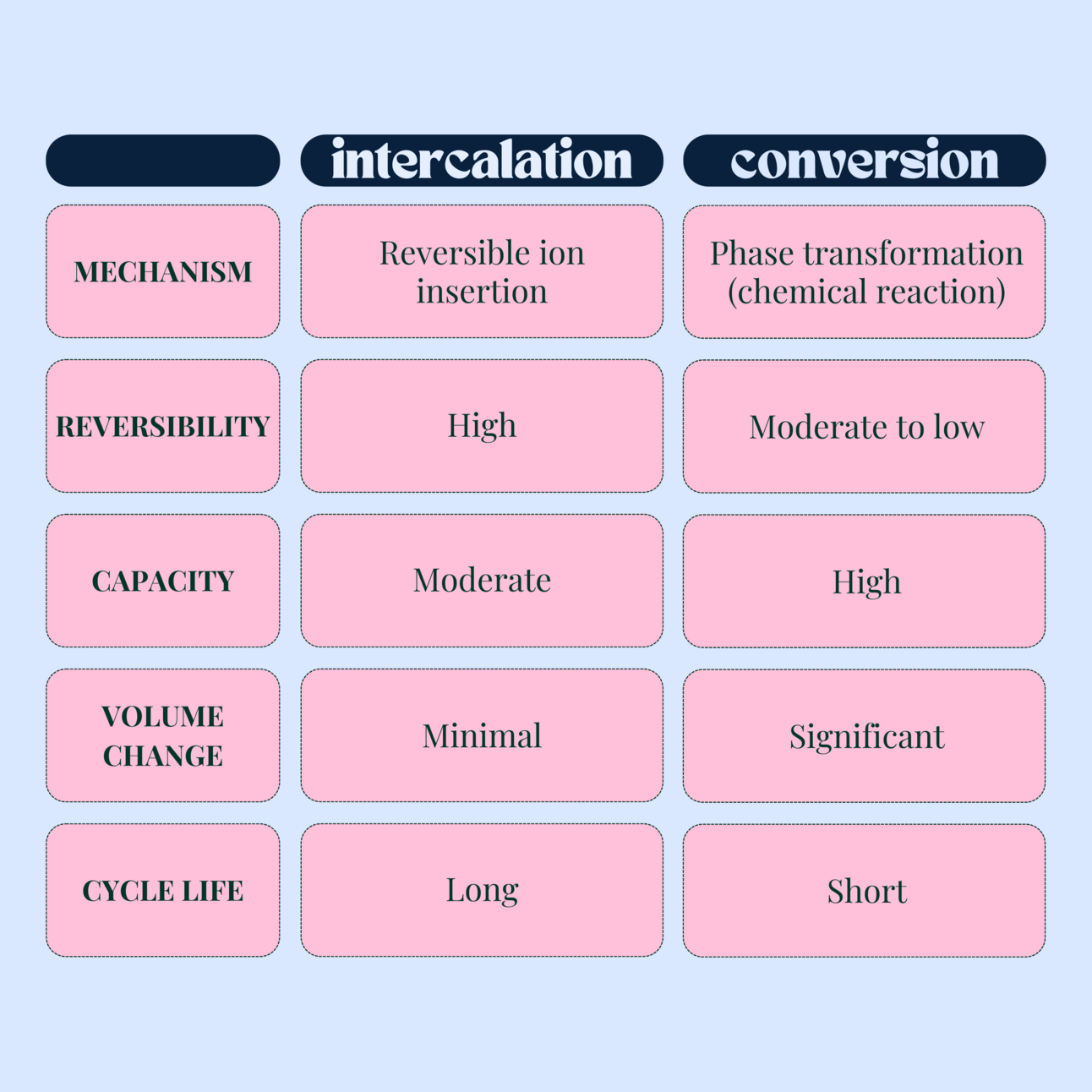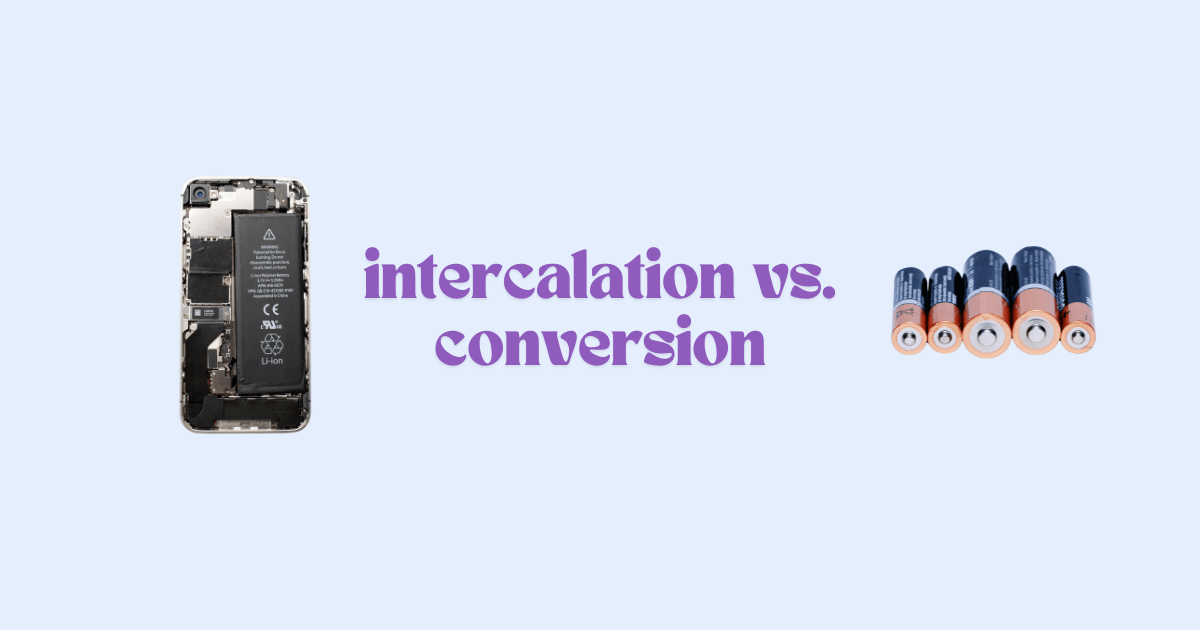In battery chemistry, intercalation and conversion refer to two distinct mechanisms by which energy is stored and released in batteries. These mechanisms occur during charge and discharge and involve the movement and transformation of ions and materials within the electrodes.
What is Intercalation?
Intercalation is the reversible insertion of ions (e.g., lithium, sodium, zinc, etc.) into the layered structure of an electrode material without significantly altering its crystal structure.
What is Conversion?
Conversion involves a chemical reaction where the active material undergoes a phase transformation, converting into a completely different compound during the charging and discharging process.

Some Resources We Love:
Jill Pestana’s Battery Industry Onboarding, week 5 has free online Electrochemistry courses!
If you are considering a PhD, this is one of my favorite articles on the topic

